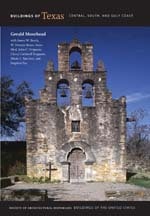The first house built in River Oaks was constructed by cotton exporter William L. Clayton, a cofounder of Anderson, Clayton and Company and undersecretary of state for economic affairs during the Harry Truman administration. William and his wife, Susan Vaughan Clayton, built it as a resort cottage, to which they moved each summer from their town house near the Museum of Fine Arts, slightly less than three miles away. In the early 1930s the house came to be occupied year-round by their daughter, Susan Clayton and her husband, S. Maurice McAshan. Sue Clayton was fascinated by Southern architecture and had Briscoe design the house as a miniature Mount Vernon. Native plant horticulturist and propagator Lynn M. Lowery planned the grounds of the two-acre site for Susan McAshan. Next door at 3390 Inwood Drive is a neo-Edwardian butterfly-plan house of 2004 by Curtis and Windham.
You are here
William L. and Susan Clayton Summer House
If SAH Archipedia has been useful to you, please consider supporting it.
SAH Archipedia tells the story of the United States through its buildings, landscapes, and cities. This freely available resource empowers the public with authoritative knowledge that deepens their understanding and appreciation of the built environment. But the Society of Architectural Historians, which created SAH Archipedia with University of Virginia Press, needs your support to maintain the high-caliber research, writing, photography, cartography, editing, design, and programming that make SAH Archipedia a trusted online resource available to all who value the history of place, heritage tourism, and learning.















